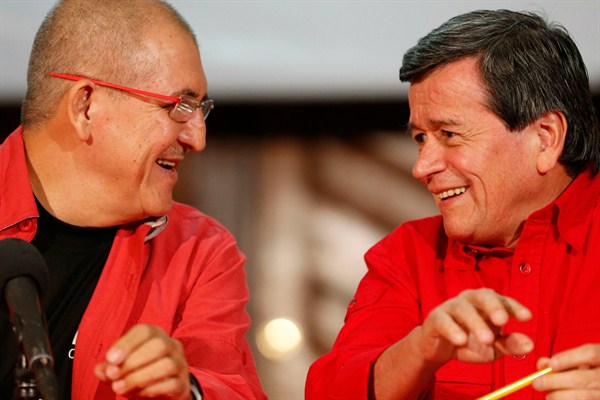HAVANA, Cuba—A judge in Colombia last week ordered President Ivan Duque to notify the United Nations Security Council about the progress made in peace talks with guerrillas from the National Liberation Army, or ELN, which the government ended earlier this year in the wake of an ELN bombing. The ruling came after two senior Colombian politicians had sued Duque, claiming that he had neglected to inform the U.N. and the guarantor countries—Venezuela, Cuba, Chile, Brazil and Norway—about the state of the negotiations. The judge said that Duque had failed to “give substantive explanations or reasons” for suspending the talks.
The court decision, announced May 3, is a major setback for Duque, who came into office last summer as a staunch critic of both the historic 2016 peace deal with the Revolutionary Armed Forces of Colombia, known as the FARC, and the negotiations with the ELN, Colombia’s largest remaining guerrilla group. After he took office, Duque said he would not engage in negotiations with the ELN until they released all their hostages, a demand the guerrillas rejected. The talks ended indefinitely in January, when the ELN planted a car bomb at a school for police cadets in Bogota, killing 22 people and injuring more than 60.
The ELN has been waging a deadly insurgent campaign since the 1960s, blowing up oil pipelines, murdering soldiers and staging attacks like the Bogota bombing. But in 2016, the rebels entered negotiations with the government on laying down their arms. Despite the suspension of the negotiations, and even after January’s attack, the ELN’s leaders say they are still committed to peace in Colombia.

